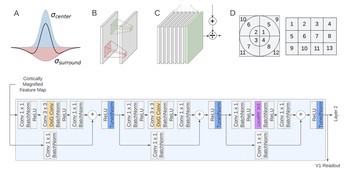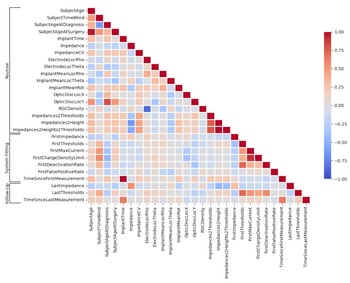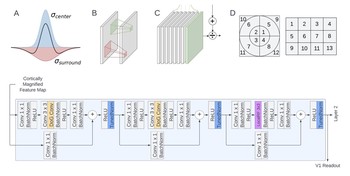Understanding the visual system in health and disease is a key issue for neuroscience and neuroengineering applications such as visual prostheses.
Galen Pogoncheff
(he/him)
PhD Student
Computer Science
University of California, Santa Barbara
Galen Pogoncheff joined the Bionic Vision Lab in 2022 as a PhD student in the Computer Science department. Driven to improve the processing of visual stimuli for bionic vision devices, he aims to advance techniques in computer vision using mechanisms inspired by neural processing.
Prior to joining the lab, Galen obtained his B.S. and M.S. in Computer Science from the University of Colorado and subsequently led the research and development of machine learning models for wearable electrophysiology devices at a local startup.
- 3205 BioEngineering
- galenpogoncheff@ucsb.edu
Honors & Awards
- Outstanding TA Award, CS, UCSB (2024)
- Meta Summer Internship (2024)
Education
-
PhD in Computer Science, 2027 (expected)
University of California, Santa Barbara
-
MS in Computer Science, 2020
University of Colorado, Boulder
-
BS in Computer Science, 2018
University of Colorado, Boulder
Project Lead
Publications
BIRD: Behavior induction via representation-structure distillation
We introduce BIRD (Behavior Induction via Representation-structure Distillation), a flexible framework for transferring aligned behavior by matching the internal representation structure of a student model to that of a teacher.
Galen Pogoncheff, Michael Beyeler arXiv:2505.23933
Beyond sight: Probing alignment between image models and blind V1
We present a series of analyses on the shared representations between evoked neural activity in the primary visual cortex of a blind human with an intracortical visual prosthesis, and latent visual representations computed in deep neural networks.
Jacob Granley, Galen Pogoncheff, Alfonso Rodil, Leili Soo, Lily M. Turkstra, Lucas Nadolskis, Arantxa Alfaro Saez, Cristina Soto Sanchez, Eduardo Fernandez Jover, Michael Beyeler Workshop on Representational Alignment (Re-Align), ICLR ‘24
(Note: JG and GP contributed equally to this work.)
Explainable machine learning predictions of perceptual sensitivity for retinal prostheses
We present explainable artificial intelligence (XAI) models fit on a large longitudinal dataset that can predict perceptual thresholds on individual Argus II electrodes over time.
Galen Pogoncheff, Zuying Hu, Ariel Rokem, Michael Beyeler Journal of Neural Engineering
Explaining V1 properties with a biologically constrained deep learning architecture
We systematically incorporated neuroscience-derived architectural components into CNNs to identify a set of mechanisms and architectures that comprehensively explain neural activity in V1.
Galen Pogoncheff, Jacob Granley, Michael Beyeler 37th Conference on Neural Information Processing Systems (NeurIPS) ‘23




